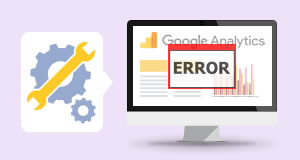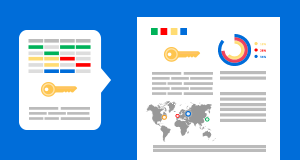Website speed is something that’s extremely important, not only for SEO reasons (speed is a ranking factor) but also for user experience. According to research by Kissmetrics, 40% of people will abandon a website if it takes more than three seconds to load.
Take into account also that many of the world’s internet users are accessing the web via mobile phones with slow internet connections and you have a recipe for a frustrating online experience.
With this in mind, the world’s biggest search engines have been developing solutions to help webmasters create fast-loading webpages that are optimised for speed on mobile devices.
This blog post will look at how three of those search engines tackled the problem: Google, Yandex and Baidu.
1. Accelerated Mobile Pages on Google
Accelerated Mobile Pages, or AMP pages, are based on an open-source library that provides a straightforward way to create webpages that are compelling, smooth, reactive, and load nearly instantaneously for users. AMP pages are stripped from complex coding solutions and keep the website code as lean and simple as possible, making it extremely fast. AMP architecture consists of two necessary components and a third optional one: AMP HTML, AMP JS and AMP CDN.
2. Turbo Pages on Yandex
Turbo Pages are Yandex’s response to AMP technology. They were originally launched for the YaBrowser in 2016, and automatically activate when a user’s 3G or Wi-Fi connection drops below 128kbps. Yandex claims that Turbo Pages are easier to implement than Facebook’s Instant Articles, and they also offer “out of the box” monetisation with ad content. Yandex Turbo Pages work with both Google Analytics and Yandex Metrica.
3. Mobile Index Pages on Baidu
The Chinese search giant Baidu has introduced its own version of AMP, called Mobile Index Pages, or MIP. The technology is a mirror version of Google’s AMP, slightly adapted to Chinese web standards. Over 1 billion MIP pages have been indexed by Baidu so far. In 2017, Baidu said that it also recognised Google’s AMP technology. The details of Google’s and Baidu’s cooperation are still to be announced, but from a technological point of view it makes sense to unify the efforts when the technologies are so similar, with the view to provide a faster web all over the world.
I hope this has given you a useful introduction to Accelerated Mobile Pages on Google, Turbo Pages on Yandex and Mobile Index Pages on Baidu. For more in-depth information, read our free guide here.
Natalia Witczyk
Latest posts by Natalia Witczyk (see all)
- Accelerated Mobile Pages: Google vs. Yandex vs. Baidu - June 18, 2018
- Mobile SEO on Google, Yandex and Baidu - May 25, 2018
- On-page SEO: An introduction to keywords, keyword mapping and on-page keyword optimisation - November 6, 2017








Can I Activate AMP Alongside Turbo Pages and Baidu at the same time?
If So, How? Please help
Hi Prada,
Natalia no longer works at Webcertain but I hope I can help you instead!
Our SEO team advises that you optimise your website just with the relevant technology of the most-used search engine in your target country, for each page.
So, if a section of your website targets Russia, use Turbo Pages. If another section of your website targets China, use MIP. And so on. This will avoid coding problems and possible conflicts.
Thanks,
Elin